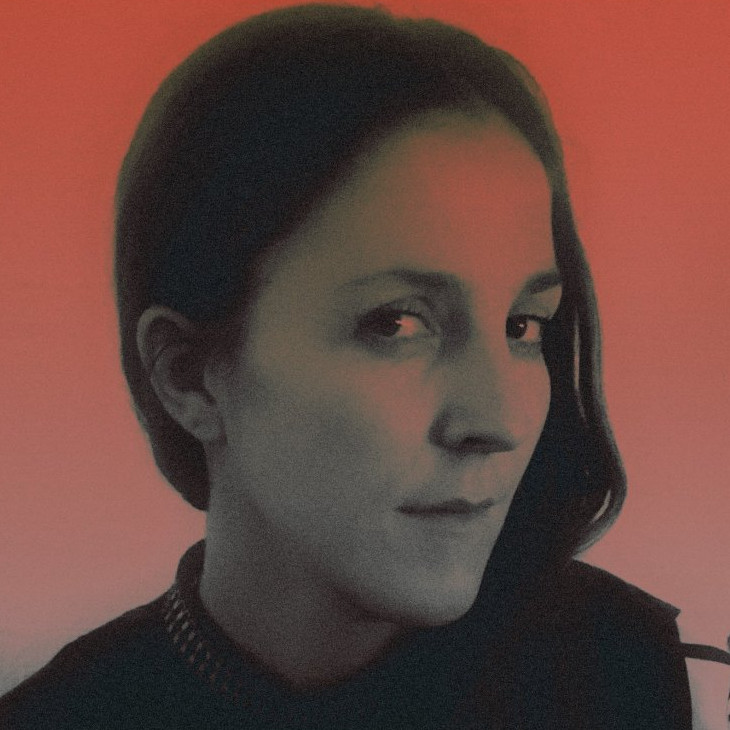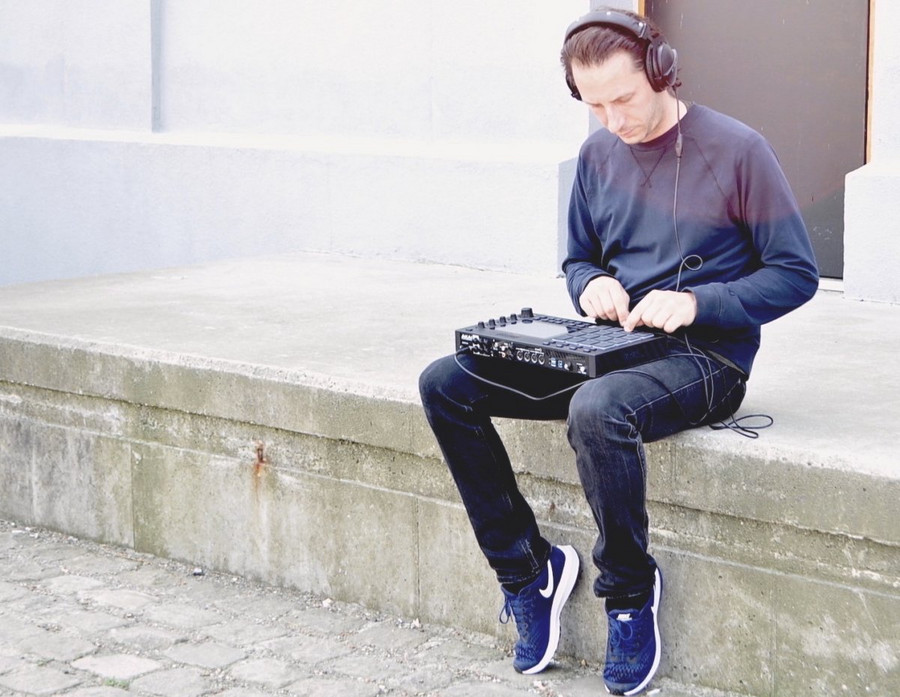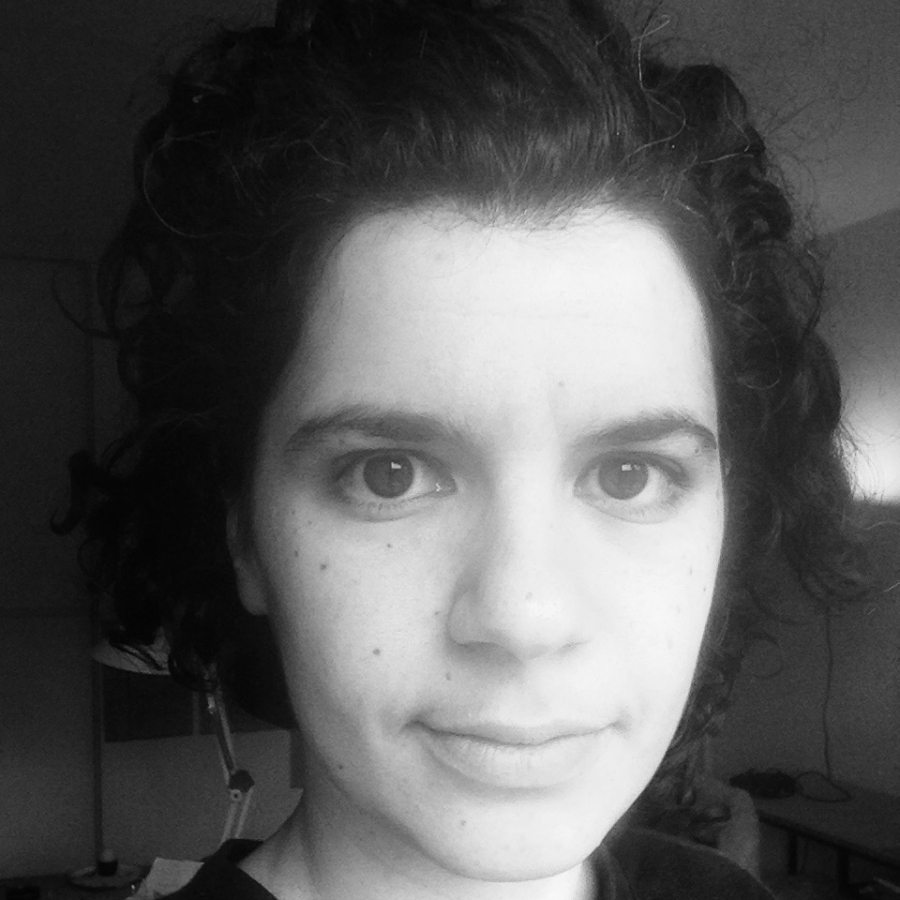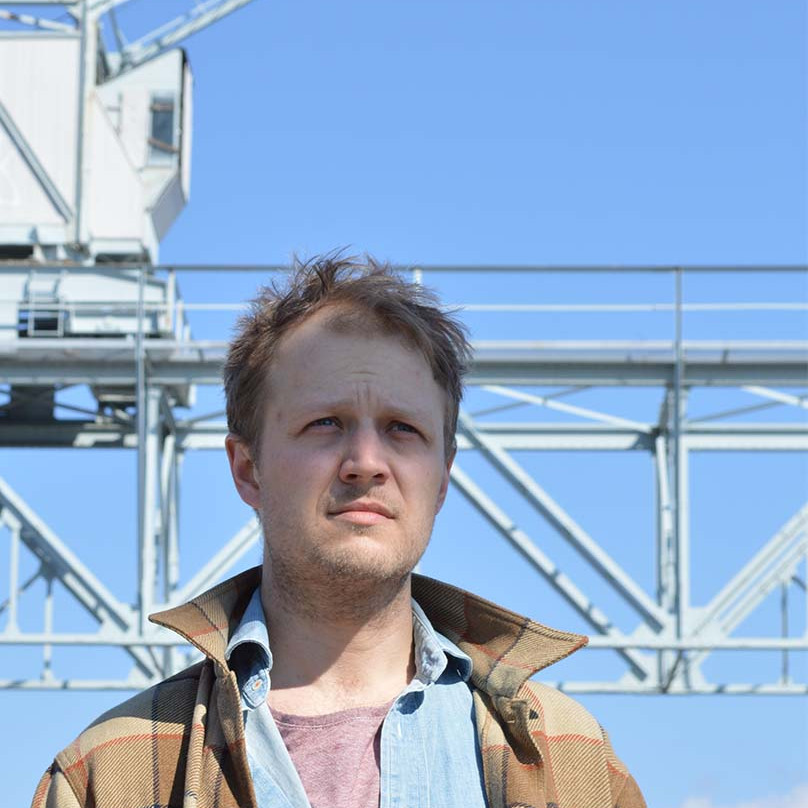Stine Grøn, graduated in 2018
What’s your job now?
I work on songs for my first solo album. Besides that, I have just finished the second album with the band IRAH, that I am a part of alongside Adi Zukanovic. Occasionally I sing for dying people.
What’s a typical working week for you?
I work on songs, do song meditations, find inspiration in museums or the like, and track vocals and choir for others. I also update music profiles and fix various tasks for our record label.
Why did you choose to study Music Creation?
I wanted to study more purposefully and focused and the study programme presented some exciting teachers that I wanted to discuss my ideas and processes with. It’s my experience that the teachers at RMC have a comprehensive knowledge and creativity that can accommodate many kinds of artists and provide high-level guidance.
What were your most important discoveries?
I found my voice and spirit in the music, in a much deeper way than before, through among other things singing meditation. The more I practised different holistic working methods, the more my whole body and voice opened and showed me new places. It opened a new way of writing and composing.
What’s the best thing you got from the programme?
I have become even more conscious of what kind of artist I am, and which intentions lies at the root of why I make music. I have been forced during my education to decide what it is that I really think is interesting in life and how I can translate it into a musical language.

Ocean Thomsen, graduated in 2018
What’s your job now?
I am a songwriter, producer and co-owner of the record company Wild North Music. I write and produce for several artists, with songs placed on national and international radio and TV. In addition, I teach ensemble playing at Gentofte Music School and have just started my own teaching company, where I teach contemporary songwriting and music production.
What’s a typical working day for you?
I start the morning by getting an overview of my calendar, my to do's and replying emails. Maybe I’m having meetings or preparing lessons. Then I produce, edit vocals or prepare myself for sessions that I have in the evening. I teach two days a week.
What were your most important discoveries?
The programme provides the framework, creates opportunities and inspires, but it is up to the individual to make things happen. It requires self-discipline and tenacity. Just like outside the school's four walls.
What’s the best thing you got from the programme?
That I stayed true to myself and went headstrong after learning the craft that interested me, even though I sometimes was met with resistance from both teachers and censors.

Jaleh Negari, graduated 2018
What’s your job now?
I compose, produce and perform live as a soloist, with my band Selvhenter and with the performance group Meshes. Besides my music and art projects, I teach.
What’s a typical working day for you?
I typically work from 10-17 either in my studio, my rehearsal room or in my workspace at home – depending on whether I am composing new music, producing or recording sound, developing ideas, drawing, writing text, doing research or preparing concerts. Monday is for office work.
Why did you choose to study Music Creation?
I wanted to cultivate creating, writing and producing music on my own for a concentrated period.
What were your most important discoveries?
To learn how a constructive and fruitful creative process could look like for me. I felt that my pursuing for the fruitful process was accommodated and made room for – for which I am very grateful.
What’s the best thing you got from the programme?
For me, the experience of producing a lot in a short time. To be pushed to do something continuously and notice what such output could teach me. And not least to share one's things with others, and to be involved in the processes and fantasy worlds of others. The conversations thereon.

Anders Skibsted, graduated in 2018
What’s your job now?
I continue my studies at the Royal Danish Academy of Music, compose, and play in and lead the contemporary tango ensemble Erhværv.
What’s a typical working week for you?
My working life is very different from month to month, depending on which projects I am involved in, alongside my studies.
Why did you choose to study Music Creation?
Because I wanted to continue my studies at RMC but would like to focus on the compositional work. I play the bandeneón and a lot of tango music and saw that as an instrumentalist I would have to go abroad to develop my skills, so therefore I chose to cultivate the compositional part of my work in my master’s degree.
What were your most important discoveries?
I learned in a large extent to work with a free rein, create and define artistic projects and at least try to administrate a compositional process. It’s something you can spend a lifetime learning. I also learned a lot about recordings, microphones and production that are enormously useful when you want to be involved with the emergence of your music all the way from the first note on paper to the finished production and release.
What’s the best thing you got from the programme?
I've got a lot of versatility out of my studies at RMC. There was an opportunity to embark on learning almost everything that you found out you needed to learn. Obviously, you can always spend more time learning everything, but there was the opportunity to create projects that contained all parts of the emergence of music: from the compositional, the administrative, the technical.
